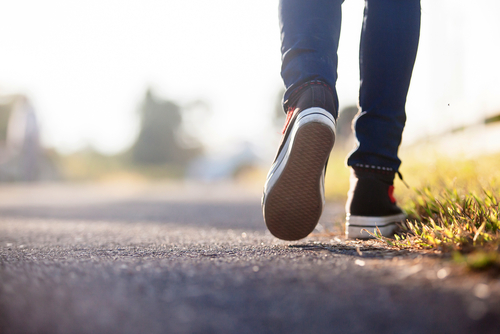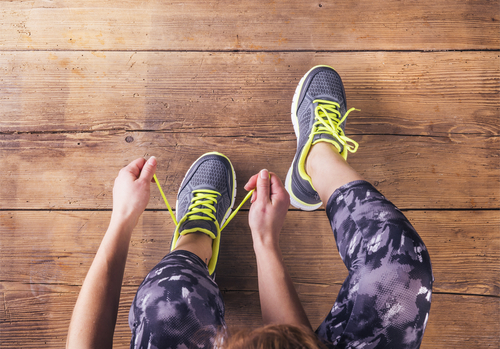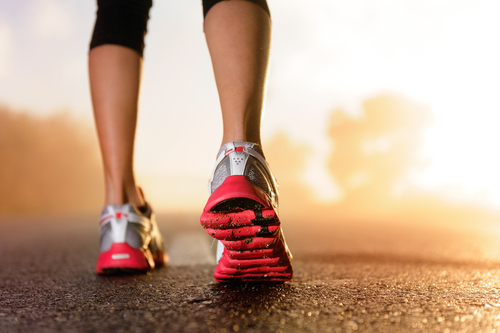
Symptoms
The primary symptom of Achilles Tendinopathy is pain and tenderness over the Achilles Tendon. The condition is also characterised by a feeling of stiffness of the ankle which can be felt when walking or descending stairs. Localised swelling or a thickening of the tendon may also be noted. A classic trait of this condition is that symptoms will be at their worst first thing in the morning or after any significant period of inactivity. Pain may ease in the short term with gentle activity but will again flare up if you overdo it. People will usually report a gradual onset symptoms which worsening over time.
Causes
It is considered to be an ‘over-use’ injury i.e. it develops as a result of overloading the tendon. This may occur in seasoned athletes due to excessive exercise and inadequate rest. In the non-athletic population it may occur due to “too much too soon” e.g. A New Year’s Resolution to take up running/walking after months or years of being sedentary. It can also be caused by a change in footwear e.g. wearing unsupportive shoes such as flip-flops during the summer months.
Treatment
Achilles Tendinopathy can be effectively managed and treated. As with a any overuse injury, early intervention is key to a swift recovery. Below are some one the means through which this condition can be managed:
-
Activity modification
One of the quickest ways to improve your symptoms is to avoid the aggravating activities e.g. running, jumping. In some cases, a simple reduction in these activities will suffice but depending on severity the activity may need to be temporarily stopped altogether. This does not mean that you cannot exercise. The higher impact, aggravating activities could be swapped for low impact alternatives such a cycling or swimming.

-
Footwear
Take care to wear supportive footwear when up and about. Also make sure that laces are done up securely. Wearing a low block heel or adding a heel raise wedge to your shoe may give relief but is not a long-term solution.
-
Ice/heat
During times of acute pain, or if the achilles is hot and inflamed – ice may be used for pain-relief. Anti-inflammatories may also be prescribed depending on your presentation. If the ankle is feeling stiff and achey, a gentle heat may be applied to give relief.
-
Physiotherapy
Your Chartered Physiotherapist is well-placed to guide you in the management of your Achilles Tendon pain. They will advice you on the above mentioned management techniques as they best apply to you. Treatment will include various modalities to improve your current symptoms – to reduce your pain and restore mobility in the foot. They will identify possible contributing factors to the development of your injury, such as muscle imbalance, faulty biomechanics etc. One identified, these can also be worked upon and improved.
Following resolution of your acute symptoms, it is likely that your rehabilitation will involve a graduated tendon loading program. This will strengthen your tendon and most importantly prevent recurrence of your injury. Your physiotherapist will also guide you through an incremental return-to-activity program to ensure you don’t relapse as you increase your activity levels.
If you are suffering from any of the issues mentioned above you may benefit from an appointment with one of our Chartered Physiotherapists.
Call us on (01) 825 2623 or email info@cloneephysio.ie. Alternatively, you can book an appointment by clicking the button below.

